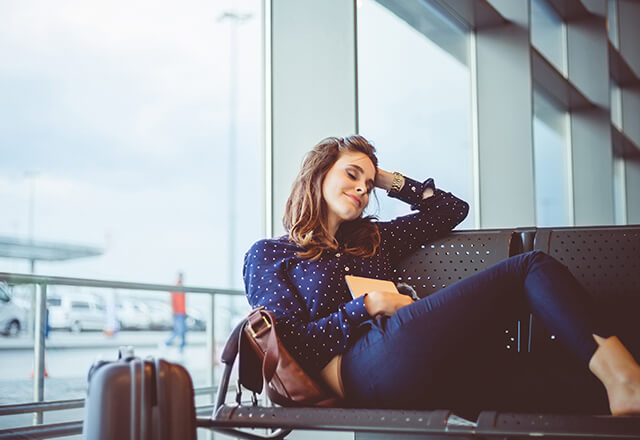There’s nothing more upsetting than your sleep being disturbed especially during traveling. The disturbances may be due to noise, light, unfamiliar environments, changes in mattresses among others. You can barely drift off to sleep with such disruptions. This is why you require the best tips to prevent sleeping disruptions while traveling. Some trips allow you to take a Canadian mattress with you, other B&Bs will have some of the best Canadian mattresses available on the market.
How to sleep on a bus, train, or plane
The following are some tactics for undisturbed sleep while traveling by bus, train, or plane:
Avoid taking alcohol
Even though alcohol is known for its slumber-inducing effects, it may later disrupt your sleep. A few hours after, and it will be difficult for you to fall back to sleep.
Switch off your electronic gadgets
It is during long travels that people search for sources of enjoyment on their phones/tablets. However, these devices generate a blue light that confuses your circadian rhythm thus preventing good sleep.
Sit next to a window
A window can serve as a travel pillow, especially if you didn’t carry one.
Pack sleep gadgets
Ensure you carry some of your sleep accessories including earplugs, eye masks, travel pillows, comfort belongings, and medical equipment. This technique guarantees comfortable and peaceful sleep throughout your journey.
Avoiding Jet Lag
Jet lag is caused by a lack of good sleep and circadian rhythm disruption due to traveling between time zones. The symptoms of jet lag are attention issues, moodiness, and a decline in how your body usually functions. Some people find it essential to take oral melatonin (a hormone that controls circadian rhythms and light/darkness patterns). You should however consult with a doctor before taking melatonin dosages.
Other ways of preventing jet lag include adjusting your schedule to the time zone of your trip, getting enough sleep, and maximum daylight exposure. Another way is to stay hydrated for the rest of your journey. You can take different hydration agents apart from caffeine and alcohol as they aggravate dehydration.
Sleeping in Hotels
The following points can help you sleep in hotels:
Maintain a dark and quiet environment
Keep your room dark via drawing curtains or using an eye mask. You can also use earplugs to block any nearby noises.
Minimize the room temperature
Consider lowering the temperature of your thermostat to around 60-67 degrees F before sleeping.
Follow your normal sleeping routines
The normal routines may include exercising, reading, warm baths, and more to help prepare your body for sleep.
Shut off all electronics
As stated above, the emission of blue light from electronics can affect your circadian rhythm resulting in sleeping interferences.
Carry comfort items from home
Having a familiar belonging helps you sleep peacefully while in a new environment.
Final Thoughts
Since sleep and mattresses go hand in hand, it may be difficult for some people to fall asleep during traveling. However, bringing some home items, following your normal bedtime routine, and changing your new schedule are ways you can incorporate to ensure good sleep.

